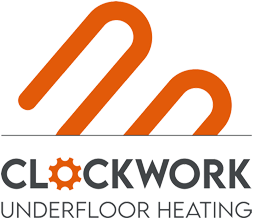 Add My Company
Add My Company

In the pursuit of sustainable living and reducing our environmental impact, innovative technologies play a pivotal role in transforming the way we build and manage our homes. Underfloor heating (UFH) is a sound solution that offers numerous benefits, particularly for small building contractors and the residential sector.
Underfloor heating systems are celebrated for their energy efficiency. Unlike traditional radiators that create temperature variations in a room, UFH systems provide even and consistent heating across the entire floor surface. This efficiency leads to lower energy consumption, ultimately reducing utility bills and minimising the carbon footprint of a building.
The comfort provided by UFH is unmatched. It delivers radiant heat from the floor, this even warmth creates a cosy environment that ensures occupants can enjoy a comfortable living space.
One of the most significant advantages of UFH is its space-saving design. Unlike bulky radiators, which can restrict interior design options and take up valuable space, UFH is discreetly hidden beneath the floor. This design freedom allows for versatile interior layouts and efficient use of available space.
Traditional heating systems often lead to the circulation of dust and allergens in the air. UFH systems, on the other hand, minimise air movement, resulting in improved indoor air quality. This is particularly valuable for homes where health and well-being are paramount.
Technological Advancements in UFH
The integration of smart technology into UFH systems enables homeowners to control their heating remotely. With the use of smartphone apps or other devices, they can adjust the temperature, set heating schedules, and monitor energy usage. This not only enhances convenience but also allows for more efficient energy management, contributing to reduced waste and lower operating costs.
UFH systems can seamlessly integrate with renewable energy sources such as solar panels or ground source heat pumps. By combining these clean energy sources with UFH, buildings can significantly reduce their reliance on fossil fuels, thereby decreasing their carbon footprint and operating costs.
Modern UFH systems have become thinner and more adaptable. This is a crucial advancement, as it allows for easier installation in both new construction and retrofitting of existing buildings. For small building contractors, this adaptability is particularly valuable when working with limited space or older structures.
To maximise the energy efficiency of UFH systems, high-efficiency condensing boilers are often used. These boilers capture and reuse heat that would otherwise be wasted, resulting in cost savings and environmental benefits. They reduce emissions and align with the goal of carbon-neutral buildings.
The Role of UFH in Achieving Carbon-Neutral Buildings
UFH systems are inherently energy-efficient due to their even heat distribution. This means less energy is required for space heating. The reduced energy consumption translates to lower greenhouse gas emissions associated with energy production, thus lowering the carbon footprint of the building.
UFH systems can easily incorporate renewable energy sources, such as solar panels or heat pumps. By harnessing clean, renewable energy, buildings can significantly reduce their reliance on fossil fuels and move closer to carbon-neutral operation. This synergy between UFH and renewables aligns with sustainability goals and enhances the environmental friendliness of a building.
UFH systems operate at lower water temperatures than traditional radiators. As a result, they use less energy. This reduction in temperature contributes to both energy efficiency and the decrease in the overall energy demand of the building. To fully capitalise on the benefits of UFH, buildings often require improved insulation. This not only enhances the efficiency of the heating system but also further reduces the overall energy demand. Clockwork Screed our sister company specialise in poured insulation and liquid screed. So if you require help with your flooring requirements, underfloor heating, insulation and screed please contact us via our contact form or telephone 0161 546 6945
In a world where carbon neutrality is a key goal for the construction industry, underfloor heating is an important asset in achieving that mission. Its ability to reduce energy consumption, integrate with renewable energy, minimise heat loss, and enhance insulation aligns perfectly with the broader objectives of carbon-neutral buildings.
For more information on A Path to Sustainable, Carbon-Neutral Buildings talk to Clockwork Underfloor Heating
